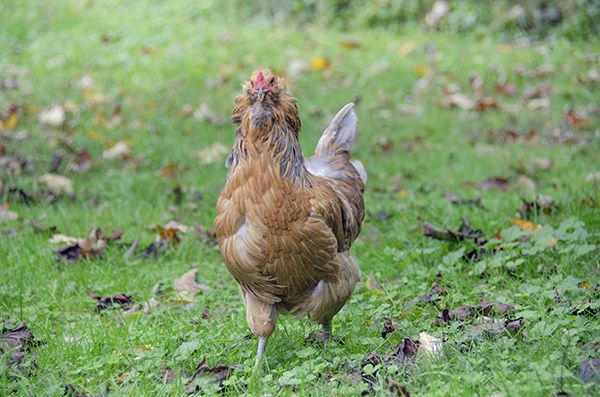
How did the chicken cross the road? Straight through your backyard.
At the New Paltz Village Board meeting on Aug. 28, the board passed the “Backyard Chicken Law,” which allows residents to keep chickens on residential (R-1) lots, but not without resistance.
Student Sen. Roberto LoBianco said most of the complaints lodged against the law concerned the human treatment of the animals.
“For some, it’s a matter of animal rights,” LoBianco said. “But, I believe it’s really a matter of food justice.”
LoBianco, who owns free-range chickens on his property, said the law will be a good thing for village residents who want a more sustainable homegrown option for their food.
The law details that chickens may be kept provided there are only six animals per half-acre lot, they are kept in a pen and they are used only for domestic use or consumption.
“It’s better to do it in a sustainable way rather than a way where animals are treated cruelly,” LoBianco said.
Anne Muller, president of Wildlife Watch, said that the chickens are likely to bring on other animals, including natural predators, to the village area. These predators may lead to future trapping issues in the village area.
“There are opossums, snakes, foxes, numerous animals that would go after the eggs,” Muller said. “It is certainly an attractant to wildlife.”
Muller said that Wildlife Watch has written several letters to the editor to local publications denouncing the law due to the environmental impact.
“It was so under-publicized,” Muller said. “There really should’ve been an environmental impact report.”
The law also includes restrictions to ensure the chicken’s living environments are up to code. Property owners and tenants are required to apply for a “Chicken Keeping License” and pay a $100 fee to receive clearance to own fowl. The law also outlines specific parameters for chicken coops, ensuring they are at least five feet in height and provide an appropriate amount of space for the animals.
Building inspectors will then be able to deny permits if the tenant or property owners fail to meet any requirements.
The law also makes specific references that do not allow roosters, which addresses many residents’ concerns regarding early waking hours due to
crowing.
The chicken keeper is also responsible for keeping their animals wellfed and ensuring they are not a nuisance to other residents.
LoBianco said that another complaint from those attending the meeting was that the law affected so few village residents. He said that given the six chickens per half-acre restriction, there would only be a couple dozen chickens in the village.
New Paltz town councilwoman Kitty Brown said that while the town does not currently have a similar law to the “Backyard Chicken Law,” she would be open to hearing more, especially after reviewing the village law.
“It would make more sense for the town to allow chickens as residents often live on larger plots,” Brown said. “It would be a great opportunity for residents to get away from the storebought, cruelly obtained eggs.”

